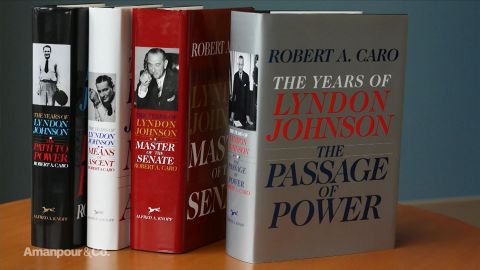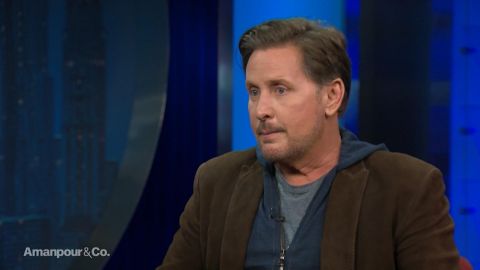Read Transcript EXPAND
CHRISTIANE AMANPOUR: I’m really fascinated by your specific take on your own society, because you’re an author and a psychologist and you write very deeply about the society you live in without being overly political. I just want to start by putting your country, Israel, in the psychologist’s chair, it’s the patient. What is your professional diagnosis?
AYELET GUNDAR-GOSHEN, CLINICAL PSYCHOLOGIST: Well, I think if I had to see Israel as a patient, then I would say this patient suffers from severe post-traumatic stress disorder. I mean, you have a nation that suffered a severe trauma, not just talking about the trauma of the holocaust, I’m talking about the complex trauma of 2,000 years of exile. And then, even though the situation changed and the trauma is no longer present at the moment, we still feel that the trauma is here right now. So, it is if the past is occurring again and again, even though the real situation is very much different than what it used to be. We’re no longer in existential threat as we were in Second World War but we still feel that we suffer from this threat. And this shapes the whole way we act.
AMANPOUR: So, let’s ask you to tell us why this is the case, if we are no longer, as you say, in that particular kind of existential threat, then why do Israelis fear so much and why do they believe that they’re under existential threat? So, you have said, and it’s true, Israel has one of the greatest stories ever told, from Exodus to today, and you’ve told, “HARDtalk,” for instance, other interviewers, “An objective fact can be turned into a myth and then later into a story, not told by professional storytellers but by politicians in order to keep reality as it is right now.” Explain what you are trying to say.
GUNDAR-GOSHEN: Well, I think if you today’s greatest Israel’s greatest storyteller, it wouldn’t be authors like Amos Oz or David Grossman, it would be our prime minister, it would be Benjamin Netanyahu. He’s the best storyteller of our time. And he’s telling the Israeli public this very compelling narrative. And I think it’s compelling because it’s a very simple narrative, you know, it’s like the kids’ stories that I read to my little kids. You have the ultimate good being the Israelis, you have the ultimate bad being the Palestinians, this story views the Palestinians as a sort of reincarnation of previous trauma, so that we had king pharaoh and then we had Hitler and now, we have them. And it’s a very compelling story but this is not — this is not reality. Reality is much more complex than that. And in reality, the Israeli people, I mean, we’re still a victim right now but we are victims of our own anxieties and of our own fear. I think we are now the victims of the fact that we don’t try to initiate a peace process.
About This Episode EXPAND
Robert Caro is perhaps America’s greatest living biographer, with his books on Lyndon Johnson and Robert Caro considered the definitive works on those men. Ayelet Gundar-Goshen is a prominent Israeli novelist and psychologist and joins the program to explore the fault lines and political narratives of her home country. Emilio Estevez joins to discuss “The Public” – which he wrote and directed.
LEARN MORE


